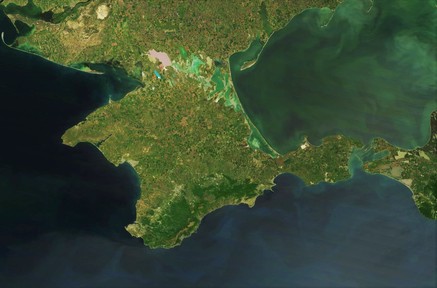On little green men – Ido Vock in The New Statesman:
‘The preparations are, Western intelligence believes, more credible than a previous massing of Russian troops in April, which did not lead to war. “The build-up this time has been much more serious, in terms of not just the teeth but the tail. They have put a lot of effort into making sure that there is all the logistical backup, which is what you need for a real attack,” said Mark Galeotti, an expert on Russian security affairs.
Yet it’s far from clear that Russia will actually take the decision to invade. US intelligence assessments reportedly helped convince sceptical European countries that the military build-up might genuinely be the prelude to a renewed assault on Ukraine. But earlier this month, the US secretary of state Antony Blinken admitted that “we don’t know whether [the Russian] President [Vladimir] Putin has made the decision to invade”.
Whether an invasion comes or not, Putin has used the apparent preparations for an invasion as additional leverage to reiterate demands for a new security architecture in its immediate neighbourhood – what Galeotti has termed “heavy metal diplomacy”.’
(…)
‘As the authorities of the pro-Russian statelets in Donetsk and Luhansk are believed to be complicit in the smuggling of goods such as arms and tobacco, there is fear among some of them that they would be prosecuted if the areas under their control were to return to Ukrainian control. At the very least they would “lose control of the smuggling and corruption schemes which have made them very rich”, Quinn-Judge told me.
For the Kremlin, meanwhile, the conflict has not succeeded in allowing it to dictate Kyiv’s geopolitical orientation, but it does allow Russia to continue to pressure and destabilise Ukraine’s pro-Western government.
Similarly, the ongoing separation of Donbas from Ukraine perversely serves the interests of hardline Ukrainian nationalists, who for the time being no longer need to contend with a significant chunk of the country’s Russophone and pro-Russian population, an inherent obstacle to the Western-orientated united polity they dream of. “Hardliners have ideological reasons to not want to pursue reintegration [with Ukraine],” Quinn-Judge said. The Ukrainian president Volodymyr Zelensky has also largely moved away from early promises to rebuild ties with separatist-controlled regions.
As Quinn-Judge concluded in a recent analysis: “The current low-level conflict could grind on indefinitely, with occasional scares like the present one simply becoming part of the pattern of the stalemate.” Even if war between Russia and Ukraine is avoided now, this round of heightened tensions at the border may not be the last.’
Read the article here.
The status quo serves both sides, except probably ordinary citizens who don’t smuggle.
See also under: Israel and Palestine.
The status quo serves those who despise it.
